Hey there! In today's fast-paced world, managing diabetes can feel like a daunting task, but it doesn't have to be. Staying informed and proactive about your care not only empowers you but also enhances your overall health. In this article, we'll dive into effective strategies and innovative tools that can make diabetes management smoother than ever. Join us as we explore these insights further, and discover how to take charge of your health journey!
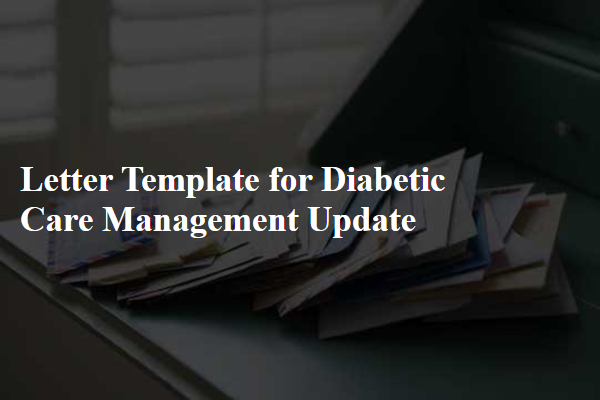
Patient's Personal Information
Diabetic care management requires meticulous tracking of patient information to ensure optimal health outcomes. Patient age, for instance, plays a crucial role in treatment decisions and risk assessment. A patient's weight (measured in kilograms) influences insulin dosage and dietary recommendations directly. Documenting relevant medical history, including previous complications like neuropathy or retinopathy, provides vital context for ongoing care. Understanding the specific type of diabetes, whether Type 1 or Type 2, allows healthcare professionals to tailor management strategies effectively. Regular monitoring of blood glucose levels (with specific target ranges) is essential for evaluating the effectiveness of current medication regimens. Additionally, noting medications prescribed, alongside their dosages and schedules, highlights adherence and potential areas for adjustment. Lifestyle factors, such as dietary habits and physical activity frequency, are critical for comprehensive assessment and support. Overall, precise and continually updated patient information fosters collaborative care and improved health outcomes in diabetes management.
Recent Blood Sugar Levels
Recent blood sugar levels play a critical role in effectively managing diabetes, particularly for individuals diagnosed with Type 1 and Type 2 diabetes. Regular monitoring--typically several times a day--provides essential insights into the patient's glycemic control, influencing insulin administration (such as rapid-acting and long-acting types) and dietary planning. The American Diabetes Association recommends maintaining blood sugar levels (ranging from 80 to 130 mg/dL before meals) to minimize complications. Elevated levels significantly above this range can lead to hyperglycemia and potential long-term complications, including neuropathy and retinopathy. Conversely, hypoglycemic events (blood sugar levels below 70 mg/dL) necessitate immediate intervention to prevent serious health risks. Recent data can be obtained through glucometers or continuous glucose monitors (CGMs), enabling more informed adjustments to treatment regimens in response to fluctuations. Regular updates on these readings are essential for optimizing diabetic care management strategies.
Medication and Dosage Adjustments
Medication adjustments are crucial for optimal diabetic care management, particularly for patients utilizing insulin regimens or oral hypoglycemic agents. For example, altering the metformin dosage to 2000 mg daily can enhance glycemic control for type 2 diabetes patients. Additionally, incorporating GLP-1 receptor agonists, such as semaglutide, at 0.5 mg weekly may assist in weight management while improving HbA1c levels. Regular monitoring of blood glucose levels can indicate responsiveness to therapy, with targets typically set between 80 to 130 mg/dL before meals. Insulin therapy may require adjustments based on factors such as physical activity or dietary changes, necessitating frequent communication between healthcare providers. Emergency protocols for hypoglycemia, characterized by blood glucose levels below 70 mg/dL, should also be updated to ensure patient safety. Comprehensive evaluations, including kidney function tests, should accompany these medication modifications to prevent adverse effects.
Dietary and Exercise Recommendations
Diabetic care management encompasses critical components that significantly influence blood glucose control, including dietary and exercise recommendations. A balanced diet rich in complex carbohydrates, such as whole grains (like quinoa and brown rice), along with lean proteins (including chicken breast and legumes) and healthy fats (such as avocados and nuts), plays a vital role in managing blood sugar levels. Regular meals every 3-4 hours help maintain stable glucose levels. The integration of physical activity is essential; the American Diabetes Association recommends at least 150 minutes of moderate aerobic exercise weekly, including activities like brisk walking and swimming. Resistance training two to three times a week can aid in muscle building, enhancing insulin sensitivity. Monitoring carbohydrate intake is crucial, aiming for about 45-60 grams per meal, ensuring glycemic control and minimizing spikes in blood sugar. Regular consultations with a healthcare provider or a registered dietitian can provide tailored guidance and adjustments based on individual health status and goals.
Follow-up Appointment and Contact Information
Diabetic care management requires continuous monitoring and adjustment to effectively maintain optimal blood sugar levels. Regular follow-up appointments, typically scheduled every three months, are essential to evaluate changes in health status, medication effectiveness, and lifestyle modifications. Patients should keep track of key metrics including HbA1c levels, daily glucose readings, and any symptoms experienced. Contact information for healthcare providers must be readily available, ensuring immediate access for questions or crisis situations. Utilize local resources such as diabetes education centers in your area for additional support and guidance on diet, exercise, and medication adherence.

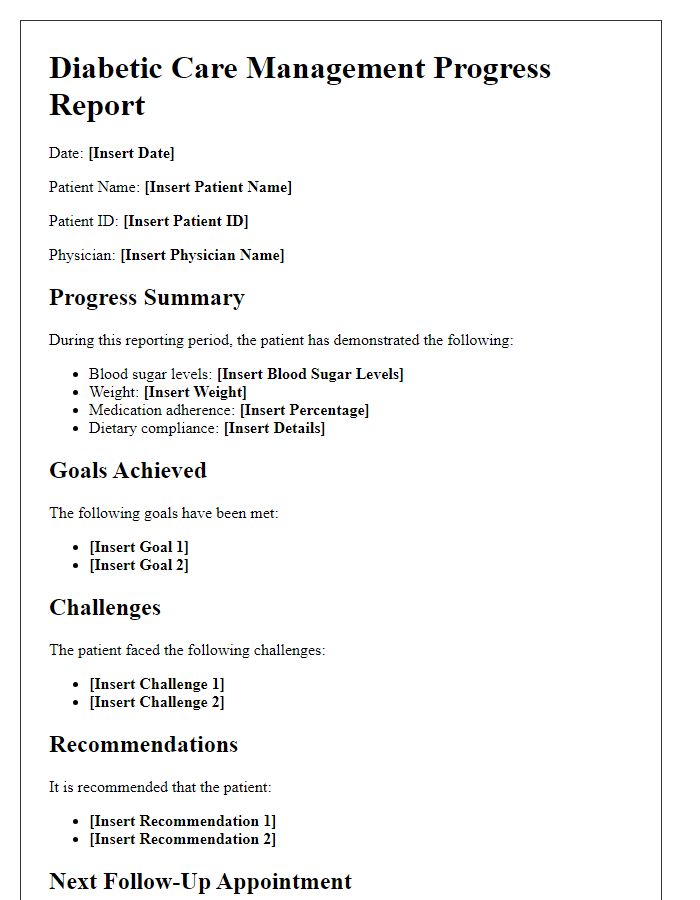
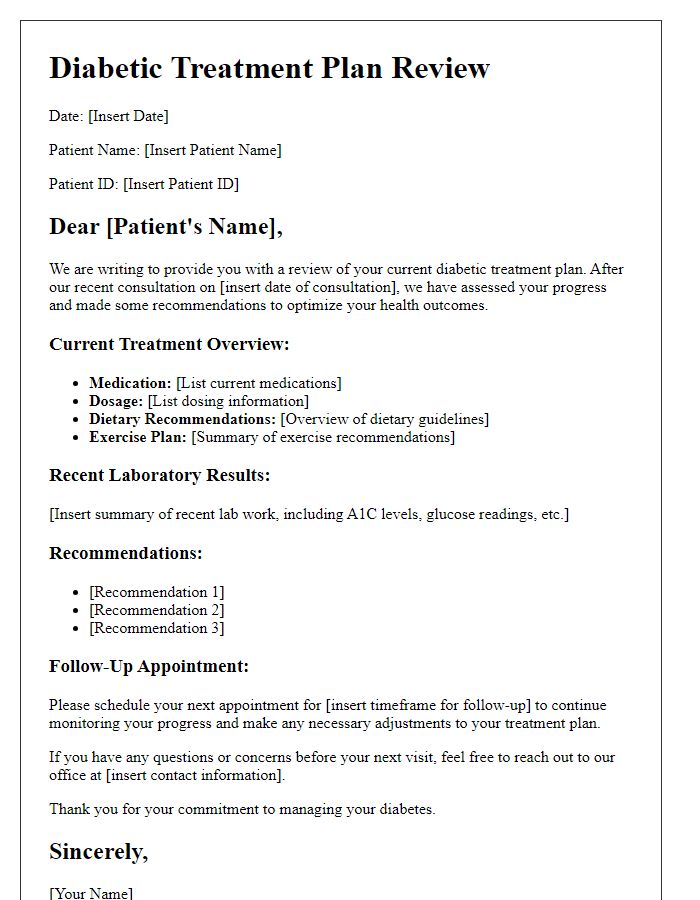
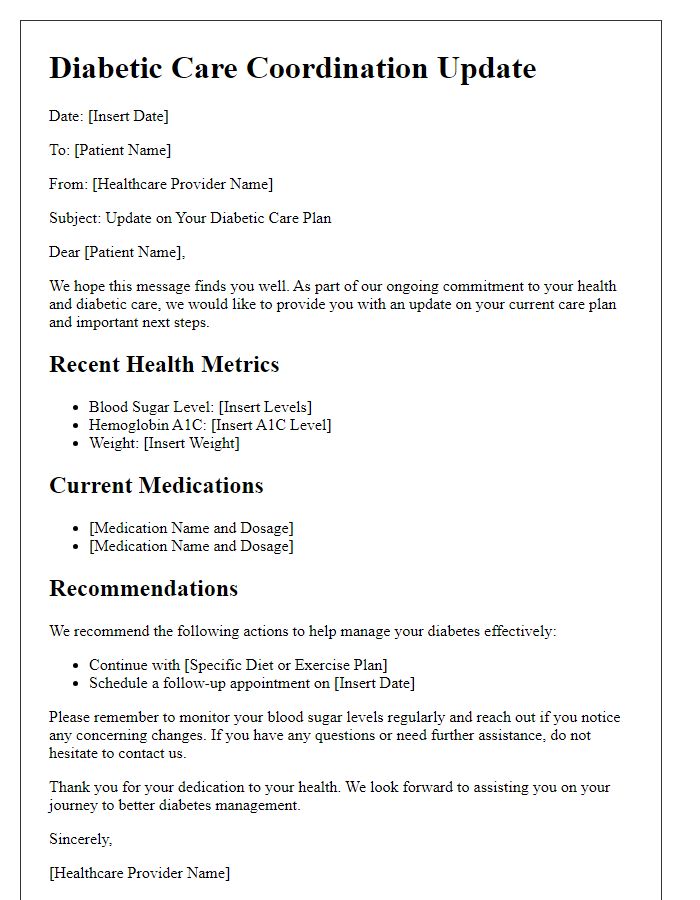
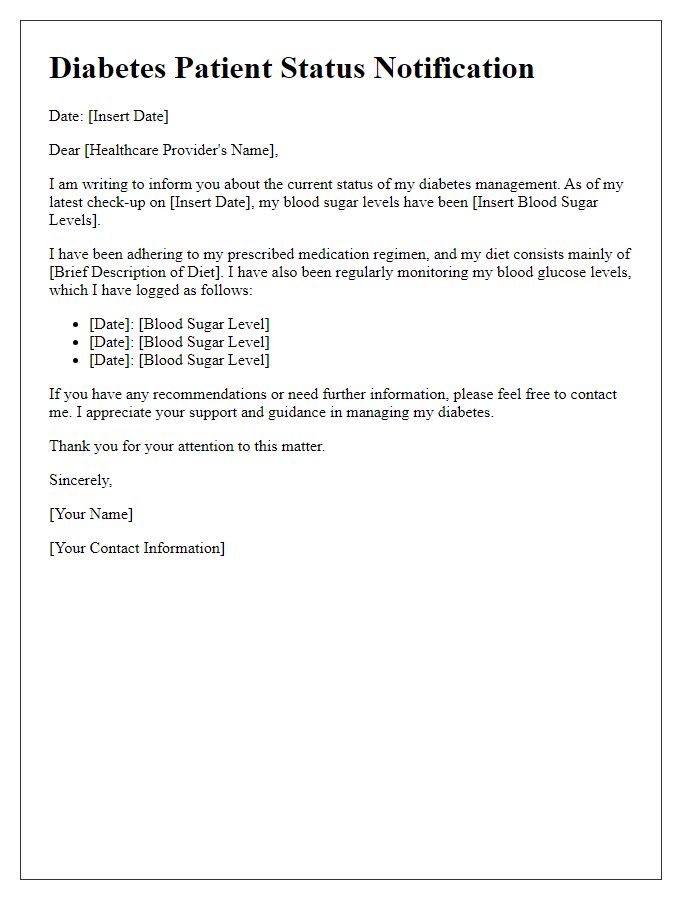
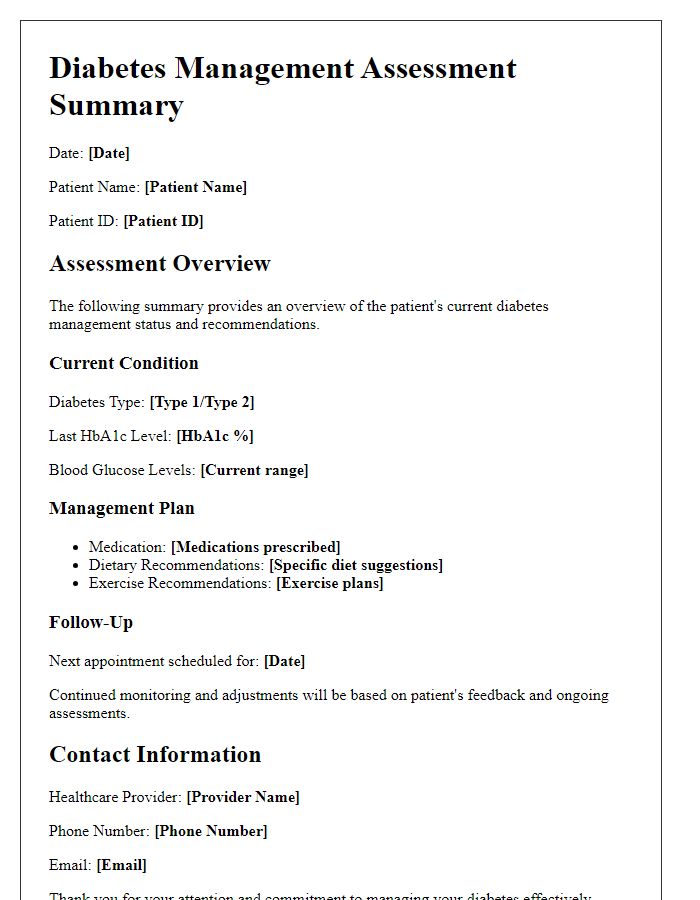
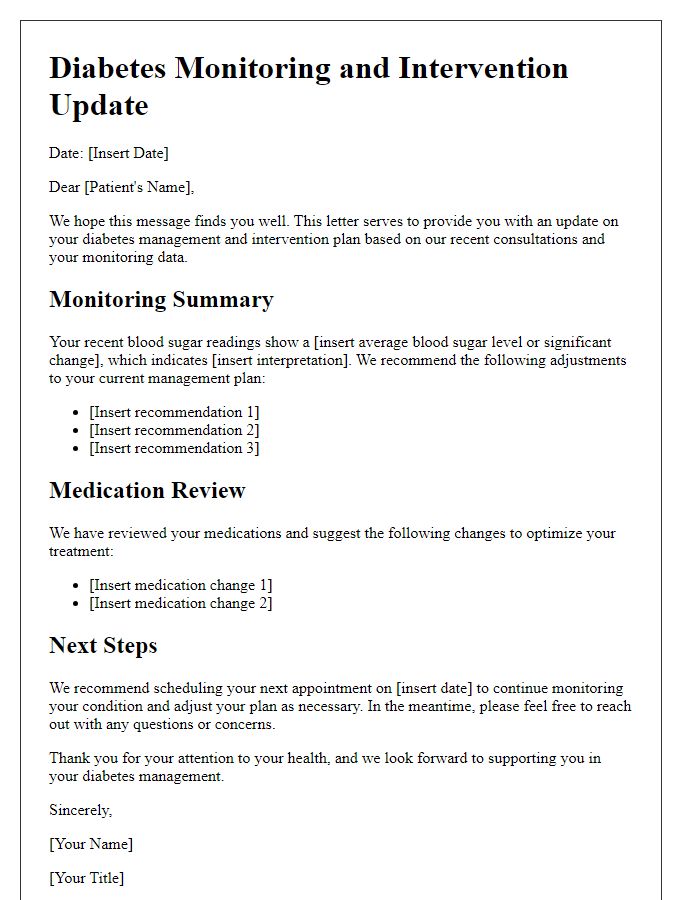
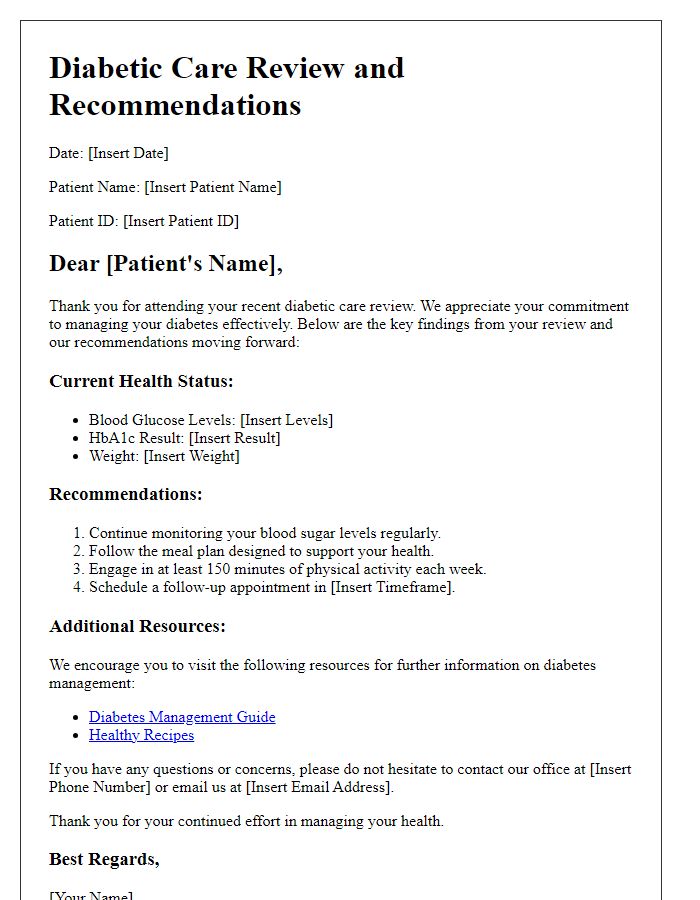
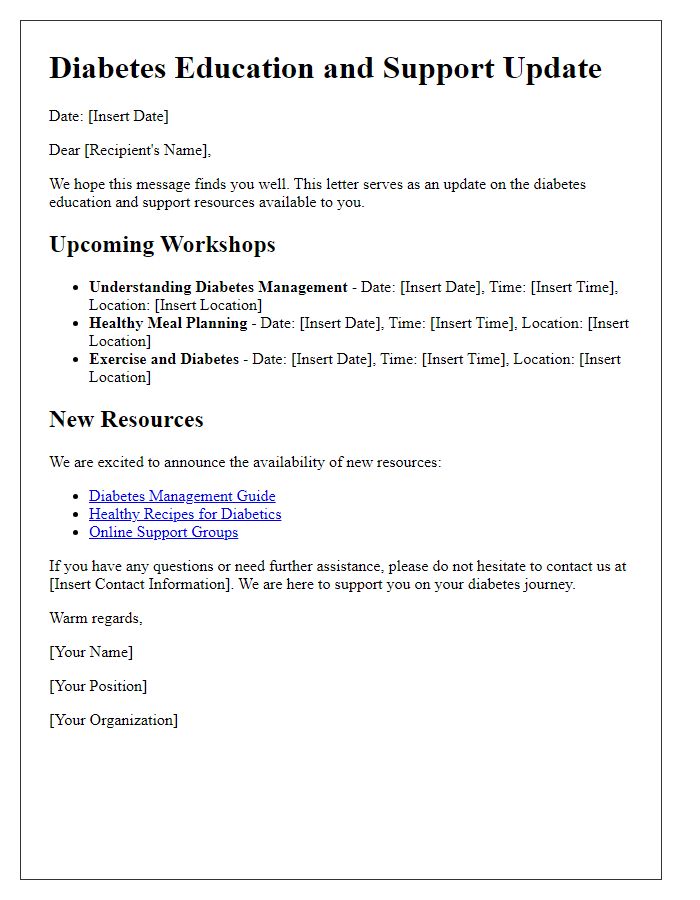
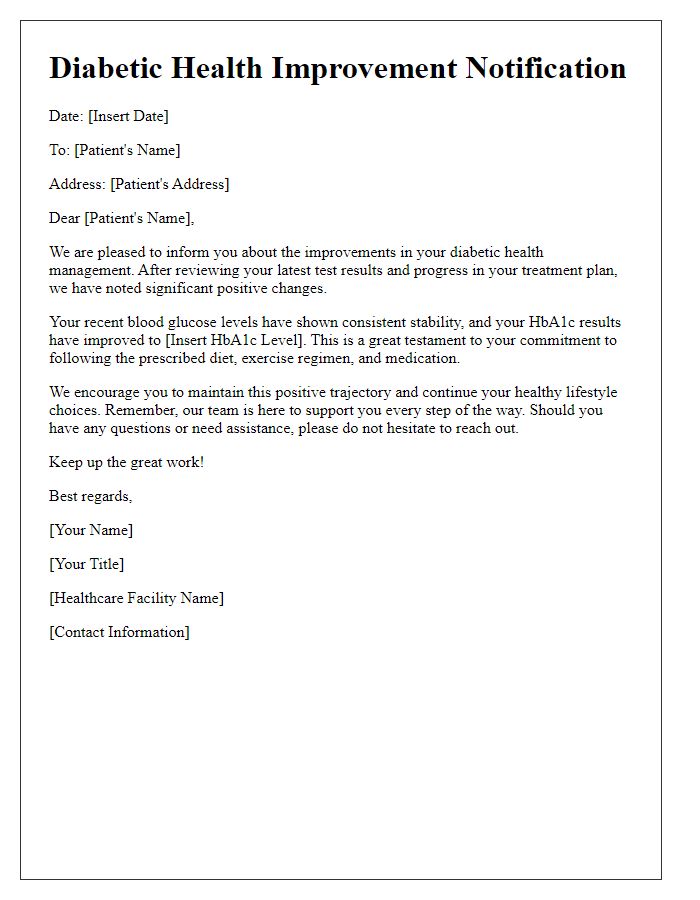
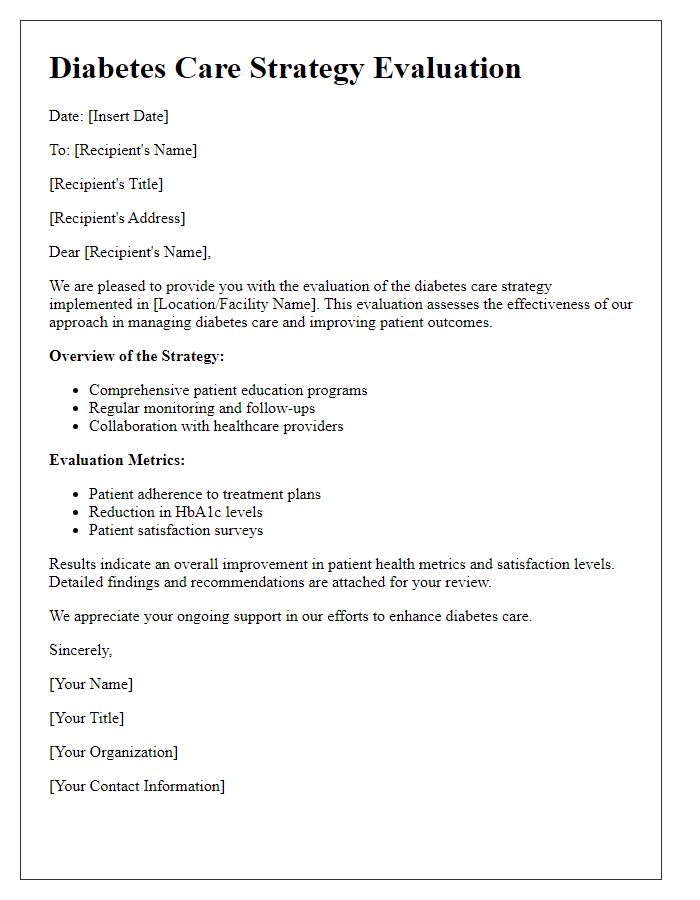


Comments